AI-Driven ERP 2024: Top Productivity Innovations
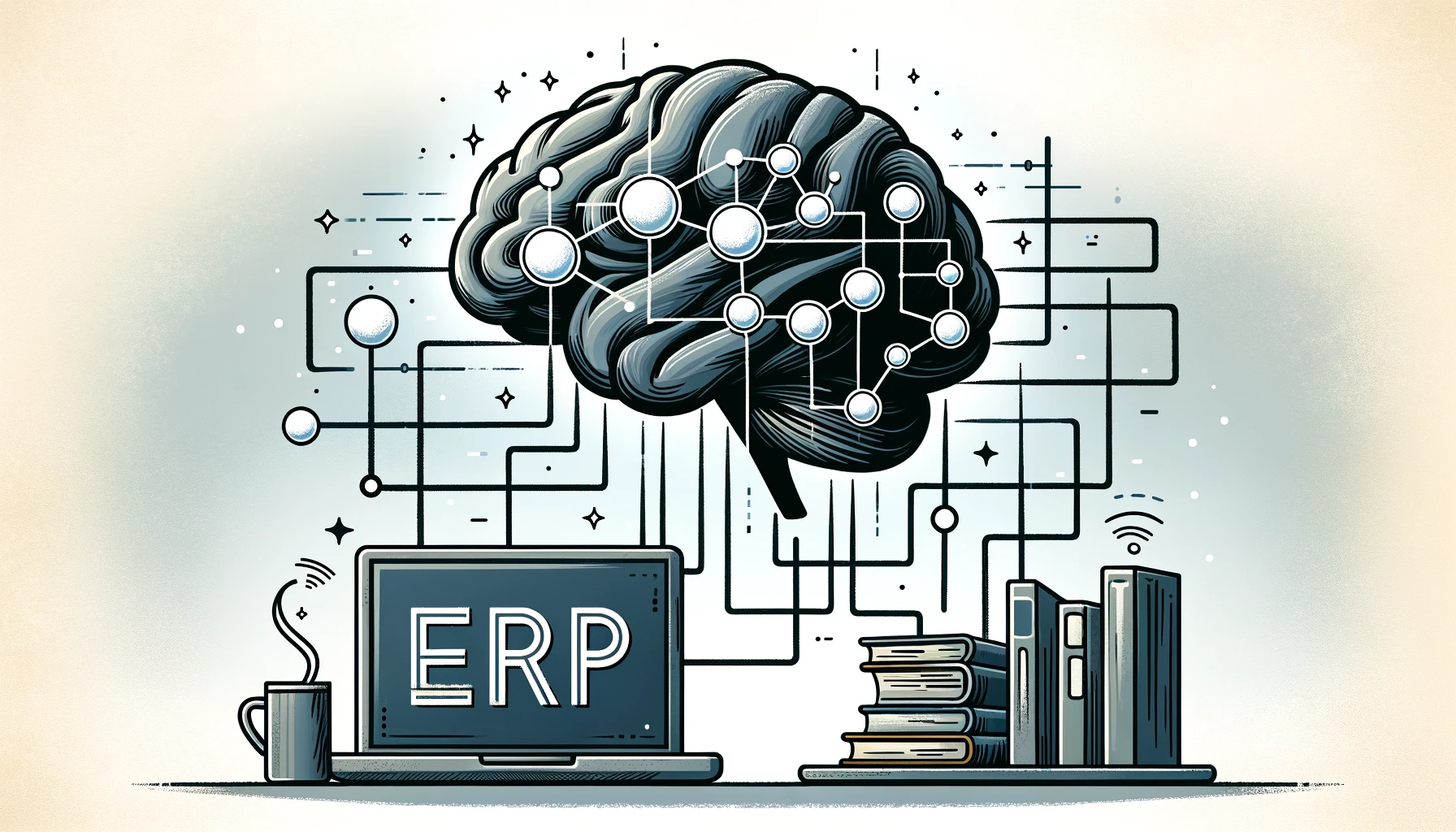
Revolutionize your business with AI-driven ERP: Enhanced efficiency, smarter processes. ➔ Explore AI ERP now!
AI ERP: Revolutionizing Business Processes
In an era where efficiency and accuracy are paramount, the integration of Artificial Intelligence with Enterprise Resource Planning (ERP) systems is proving to be a game-changer. The amalgamation of AI and ERP is transforming business processes, enhancing decision-making, and automating repetitive tasks, thus allowing companies to focus on strategic initiatives.
AI-powered ERP systems are designed to learn and adapt, improving their performance and accuracy over time. This learning ability translates into several benefits for businesses. First, it can significantly reduce manual data entry and the associated errors. By using machine learning algorithms, AI ERP can understand and process large volumes of data, making the whole system more efficient and reliable.

Further, AI ERP can provide predictive analytics that can be invaluable in forecasting market trends and customer behavior. This can help businesses to stay ahead of the curve and make informed decisions. For instance, a company can use these insights to optimize its inventory, ensuring that it has the right products at the right time, thus reducing storage costs and improving customer satisfaction.
AI ERP systems can also automate routine tasks, freeing up employees’ time to focus on more complex and strategic tasks. This can lead to increased productivity and efficiency, ultimately improving the company’s bottom line.
| Metric | Before AI ERP | After AI ERP | Improvement |
|---|---|---|---|
| Manual Data Entry Time (hours) | 20 |
5 |
-75% |
| Forecasting Accuracy (%) | 60 |
85 |
+41.7% |
| Productivity (%) | 70 |
90 |
+28.6% |
It’s an exciting time for businesses as they leverage AI ERP to transform their operations and gain a competitive edge in the market, so lets dive right in and see how you can use AI for your business.
Harnessing AI ERP for Enhanced Decision-Making
Decisions shape the destiny of businesses. In the corporate world, every decision made echoes in the corridors of profit and loss. That’s where AI ERP systems come into play, acting as a game-changer for decision-making processes.
By integrating AI into ERP systems, businesses are able to harness the power of predictive analytics. This helps in generating insights from vast amounts of data, making it easier for companies to make informed and strategic decisions.
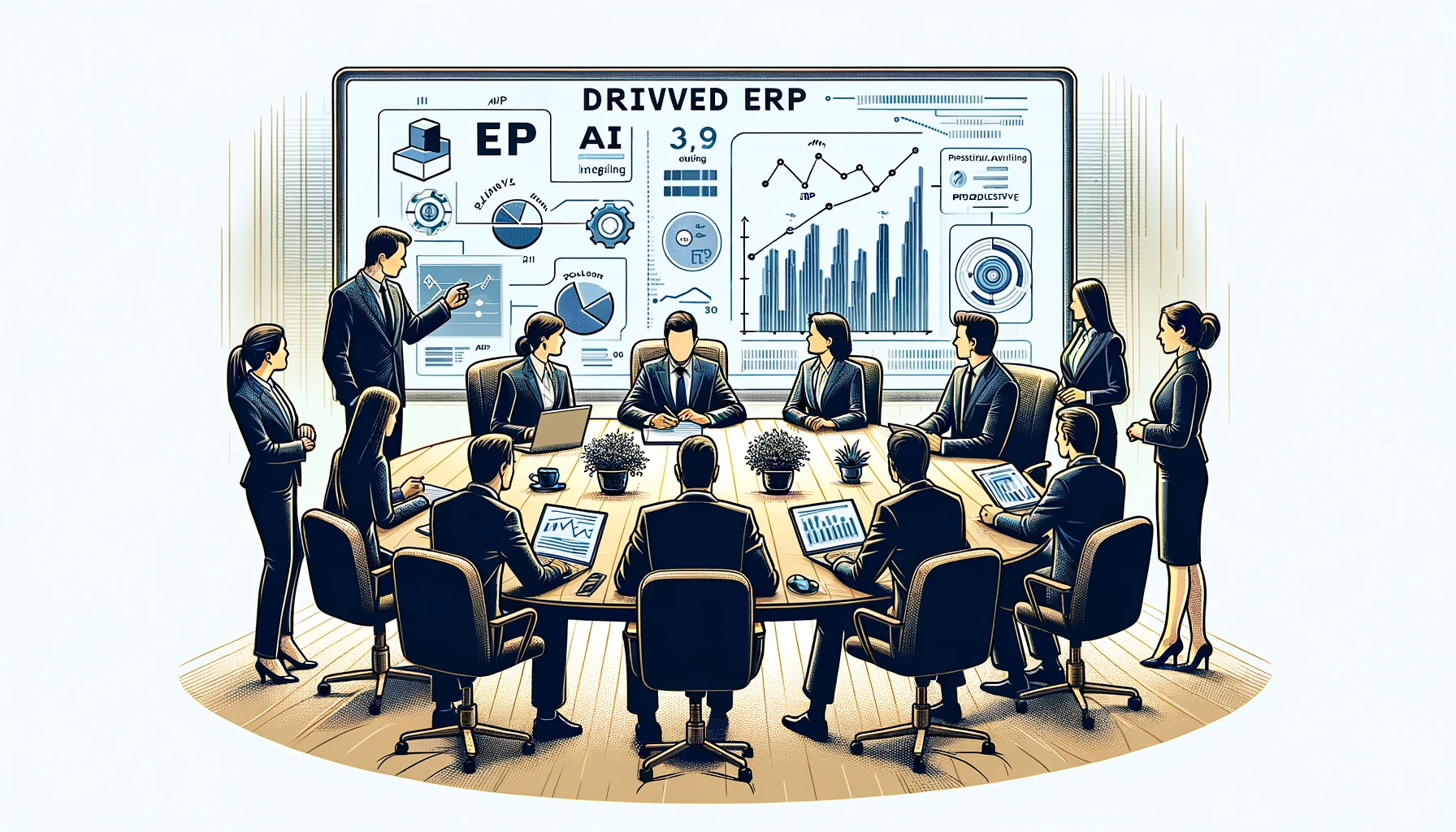
For instance, imagine a retail company that is planning its inventory for the upcoming holiday season. With AI ERP, the system can analyze past sales data, current market trends, and even social media buzz to predict which products will be in high demand. This allows the company to stock up on the right products, thus reducing storage costs and the risk of unsold inventory.
Let’s look at how the integration of AI into ERP systems can enhance decision-making:
-
Automated Data Analysis: AI ERP systems can automate the process of data analysis, reducing the time and effort required to extract insights from data. This not only improves efficiency but also reduces the risk of human error.
-
Predictive Analytics: AI ERP provides predictive analytics, allowing businesses to anticipate future trends and scenarios. This can help in strategic planning and decision making.
-
Real-Time Insights: AI ERP systems can process data in real-time, providing businesses with up-to-date insights. This allows for quicker decision making, which can be crucial in a fast-paced business environment.
| Metric | Before AI ERP | After AI ERP | Improvement |
|---|---|---|---|
| Data Analysis Time (hours) | 40 |
10 |
-75% |
| Decision Accuracy (%) | 70 |
90 |
+28.6% |
| Real-time Decision Making (%) | 50 |
80 |
+60% |
Harnessing AI ERP for decision-making can give businesses a competitive edge. It not only improves the efficiency and accuracy of decisions but also allows businesses to anticipate future trends, leading to strategic planning and smarter decisions. With AI ERP, businesses are no longer just reacting to market changes - they’re staying one step ahead.
Practical Examples of AI ERP in Modern Business
Exploring the integration of Artificial Intelligence with Enterprise Resource Planning (ERP) systems, it’s clear that the modern business world is undergoing a transformative shift. This fusion of technology is not just about automating routine tasks; it’s about enabling businesses to make more informed decisions, predict future trends, and optimize operations in ways that were previously unimaginable.
One prime example of AI ERP in action is within the supply chain management of a manufacturing company. Here, AI ERP can analyze patterns in supply and demand, predict potential disruptions, and suggest optimal solutions. The system can consider variables such as weather patterns, geopolitical events, and market trends, providing a comprehensive and proactive approach to supply chain management.
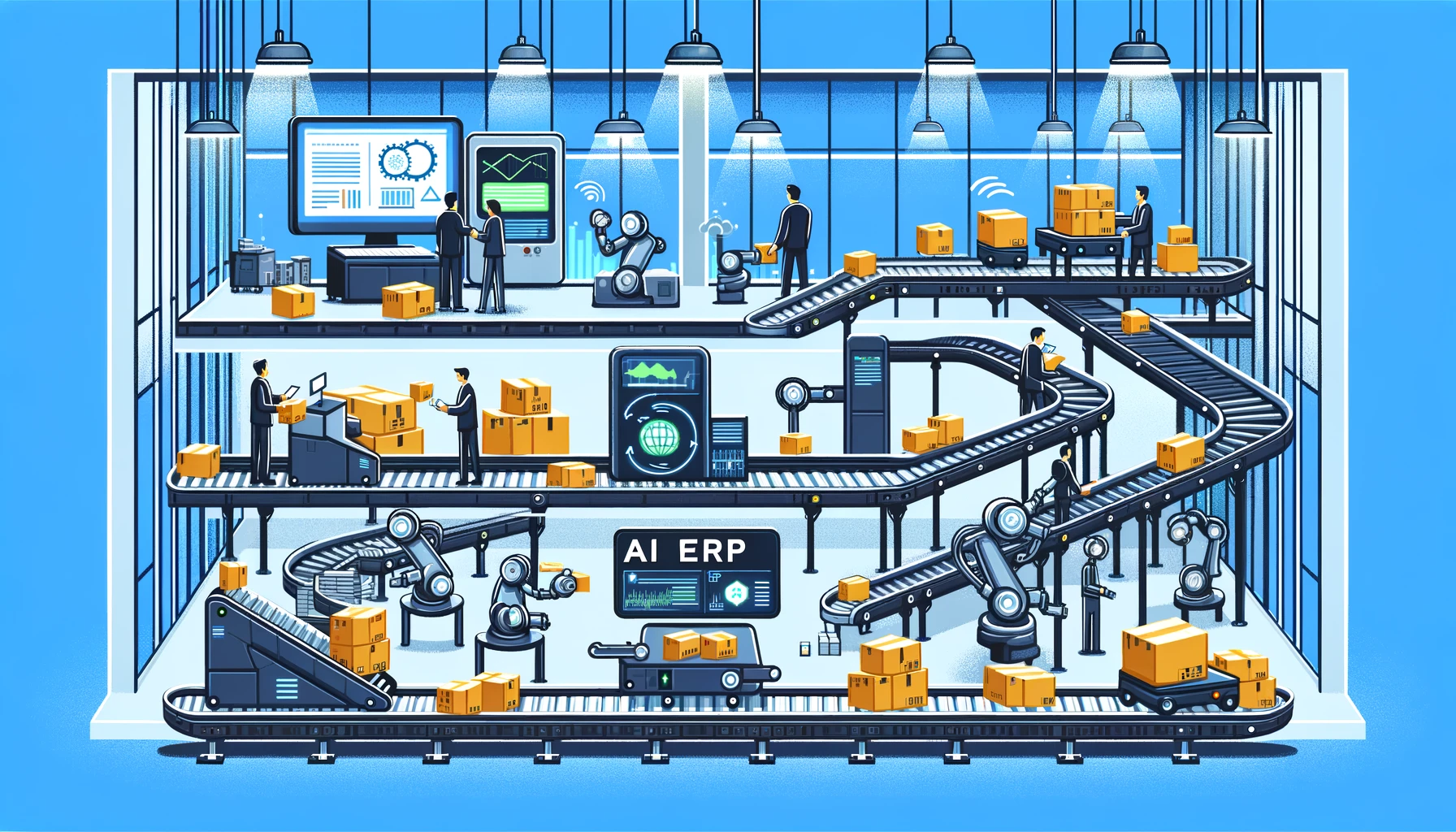
AI ERP also plays a crucial role in customer relationship management. It can analyze customer behavior, preferences, and feedback to provide personalized recommendations and improve customer satisfaction. For instance, an online retailer can use AI ERP to suggest products based on a customer’s browsing history and purchase patterns, leading to a more personalized shopping experience and increased customer loyalty.
Key benefits of AI ERP in modern businesses include:
-
Proactive Decision Making: AI ERP systems can anticipate problems and suggest solutions before they become critical. This proactive approach can save businesses time and resources.
-
Enhanced Efficiency: By automating routine tasks, AI ERP allows businesses to focus on strategic initiatives, leading to improved productivity and efficiency.
-
Personalized Customer Experience: AI ERP can analyze customer behavior and preferences, enabling businesses to provide a personalized customer experience.
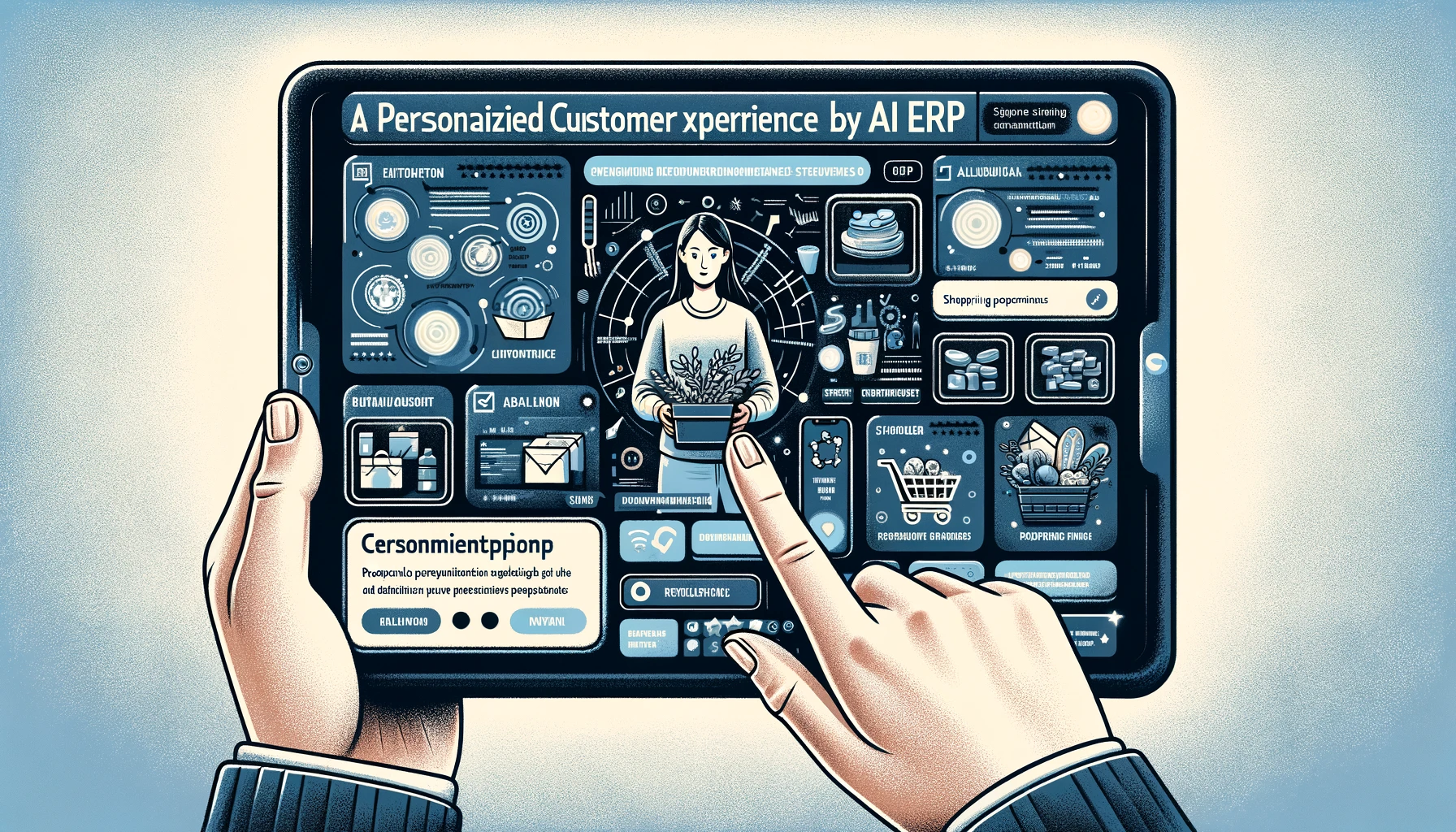
In summary, AI ERP is not just a tool for automation; it’s a strategic resource that can transform the way businesses operate. By providing actionable insights, driving proactive decision-making, and enabling personalized customer experiences, AI ERP is shaping the future of modern business operations.
How to Get Started with AI ERP: A Comprehensive Guide
Embarking on the journey of integrating AI ERP into your business operations may seem daunting, but with a strategic approach and clear understanding, it can become a transformative experience for your company. Here’s a comprehensive guide to help you get started.
Understanding your business needs is the first step towards successful implementation. Take time to identify the areas where AI ERP can bring the most value. It could be improving forecasting accuracy, automating data entry, or enhancing decision-making processes. Once you’ve identified these areas, you can move onto selecting the right AI ERP system that aligns with your specific needs.
The selection process can be simplified by considering the following factors:
- Scalability: Choose a system that can grow with your business. As your operations expand, so will your data and processing needs. The AI ERP system should be able to scale accordingly.
- Integration: The system should seamlessly integrate with your existing IT infrastructure. This ensures smooth data flow and reduces the chances of compatibility issues.
- User-Friendliness: An AI ERP system should be easy to use. A user-friendly interface ensures that your team can quickly adapt to the new system, reducing the learning curve and boosting productivity.
Once you’ve selected the right AI ERP system, the next step is implementation. This involves configuring the system to align with your business processes, training your team to use the system, and migrating your existing data to the new system. It’s crucial to have a well-defined implementation plan to ensure a smooth transition.
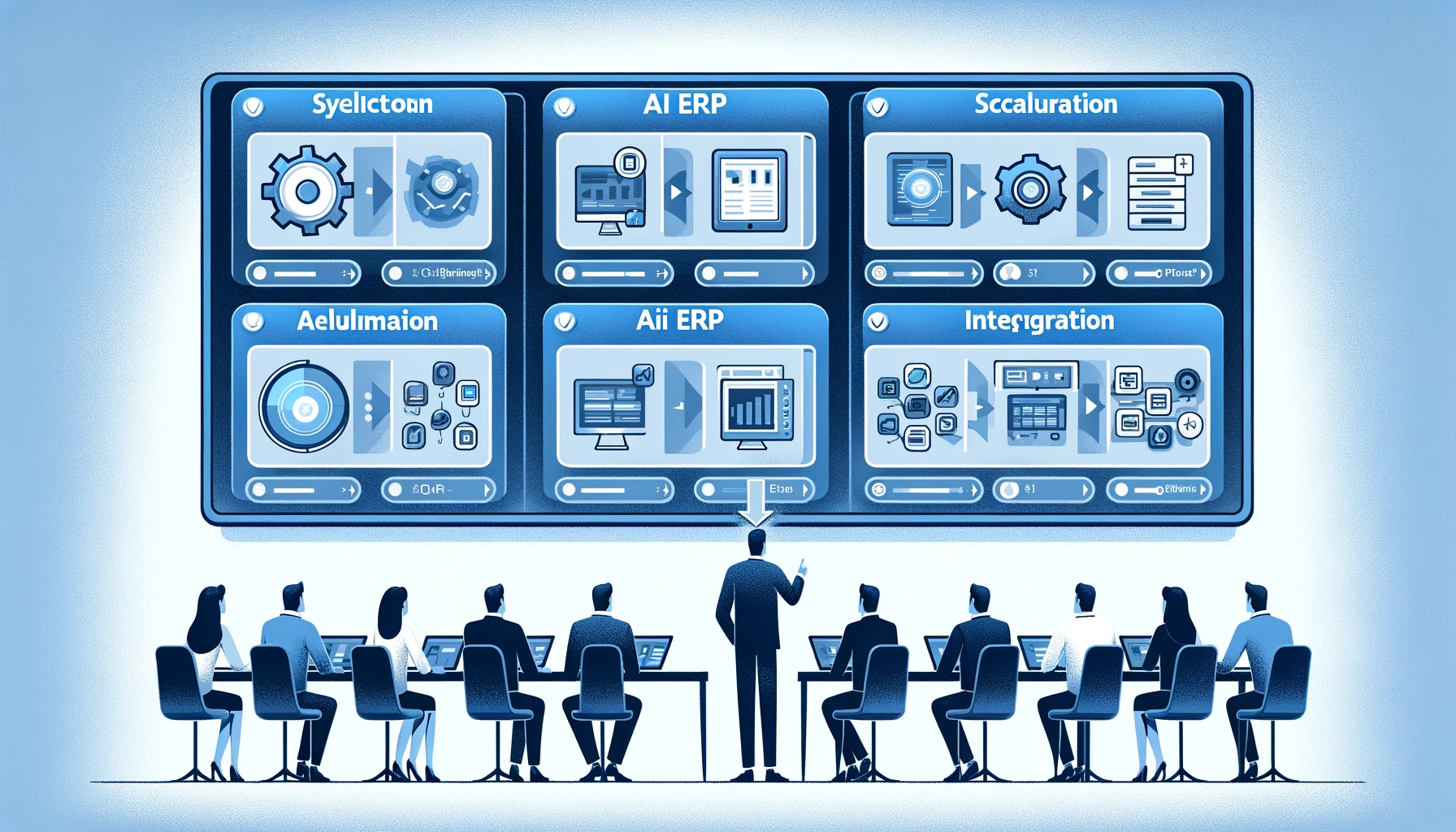
Here’s a simple implementation plan:
- Preparation: Define clear objectives and prepare your team for the change. This could involve training sessions or workshops to familiarize your team with the new system.
- Configuration: Customize the AI ERP system to align with your business processes. This could involve setting up workflows, defining roles, and configuring settings.
- Data Migration: Transfer your existing data to the new system. This should be done carefully to avoid any data loss or corruption.
- Testing: Test the system thoroughly to ensure it’s working as expected. Identify any issues and rectify them before going live.
- Deployment: Once everything is set, you can go live. Monitor the system closely during the initial phase and address any issues promptly.
| Phase | Duration | Key Activities |
|---|---|---|
| Preparation | 2 weeks |
Training, setting expectations |
| Configuration | 1 month |
Customizing system, defining workflows |
| Data Migration | 2 weeks |
Transferring data, validating data integrity |
| Testing | 1 week |
Identifying issues, rectifying issues |
| Deployment | Ongoing |
Monitoring, troubleshooting |
With the right approach and resources, integrating AI ERP into your business operations can be a smooth and rewarding journey. The key is to understand your needs, choose the right system, and have a well-defined implementation plan. Once implemented, AI ERP can unleash a wave of efficiency, accuracy, and strategic decision-making that can propel your business to new heights.
AI ERP: The Key to Simplified Business Management
In today’s fast-paced business world, businesses are constantly looking for ways to streamline their operations and make data-driven decisions. This is where AI ERP steps in, offering a solution that simplifies business management by automating routine tasks, providing real-time insights, and enabling proactive decision-making.
AI ERP systems are designed to process vast amounts of data, providing businesses with valuable insights that can enhance their decision-making processes. By analyzing patterns and trends, AI ERP can help businesses to anticipate market changes, optimize operations, and make strategic decisions.
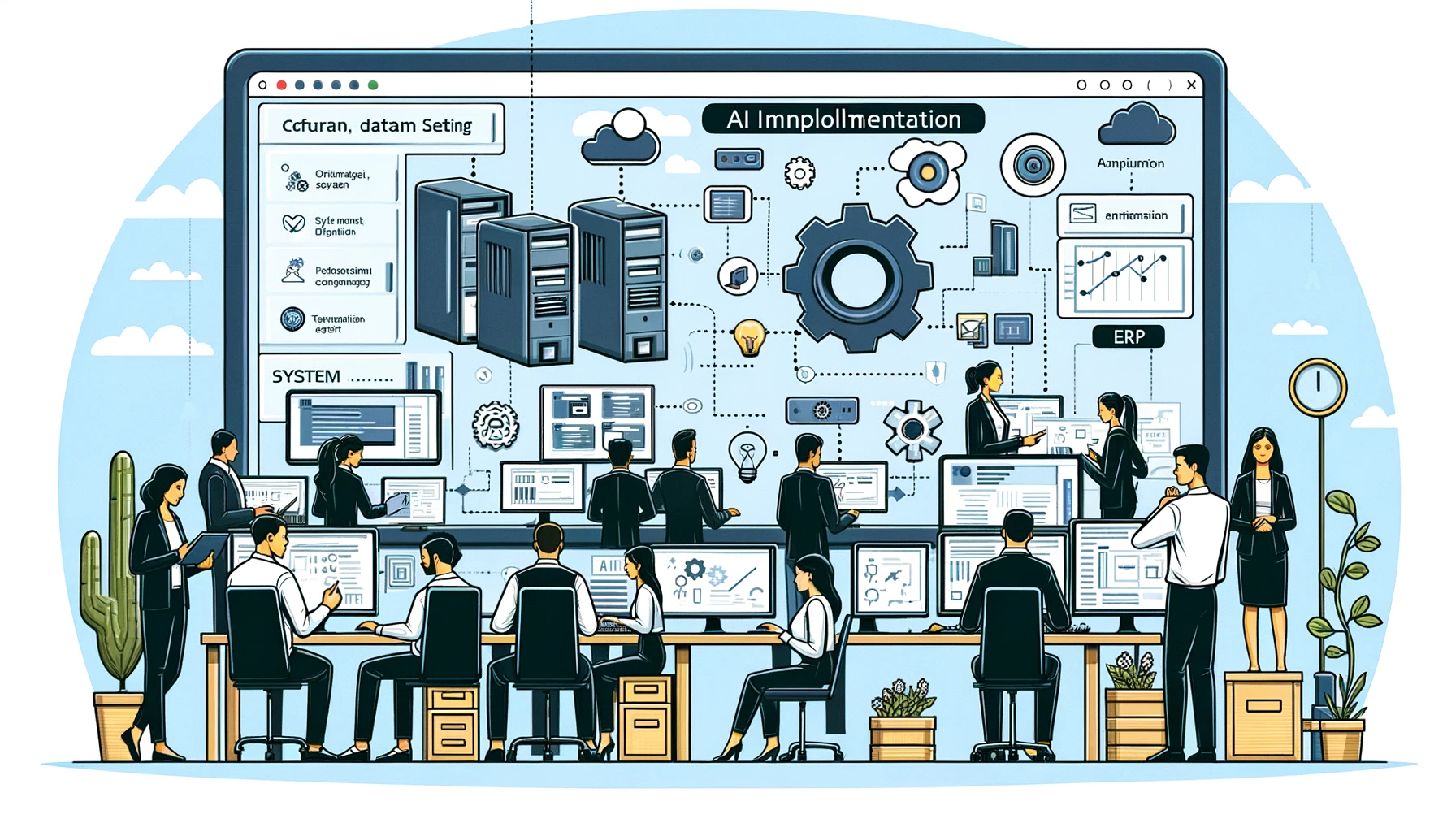
Here are some ways AI ERP simplifies business management:
-
Automated Processes: AI ERP can automate routine tasks such as data entry, invoicing, and inventory management. This not only saves time but also reduces the risk of human error.
-
Real-Time Insights: With AI ERP, businesses can access real-time data and insights, allowing them to make quick and informed decisions. This is especially beneficial in a fast-paced business environment where every second counts.
-
Proactive Decision Making: AI ERP systems can predict future trends and scenarios based on historical data and current market trends. This allows businesses to make proactive decisions, helping them to stay ahead of the curve.
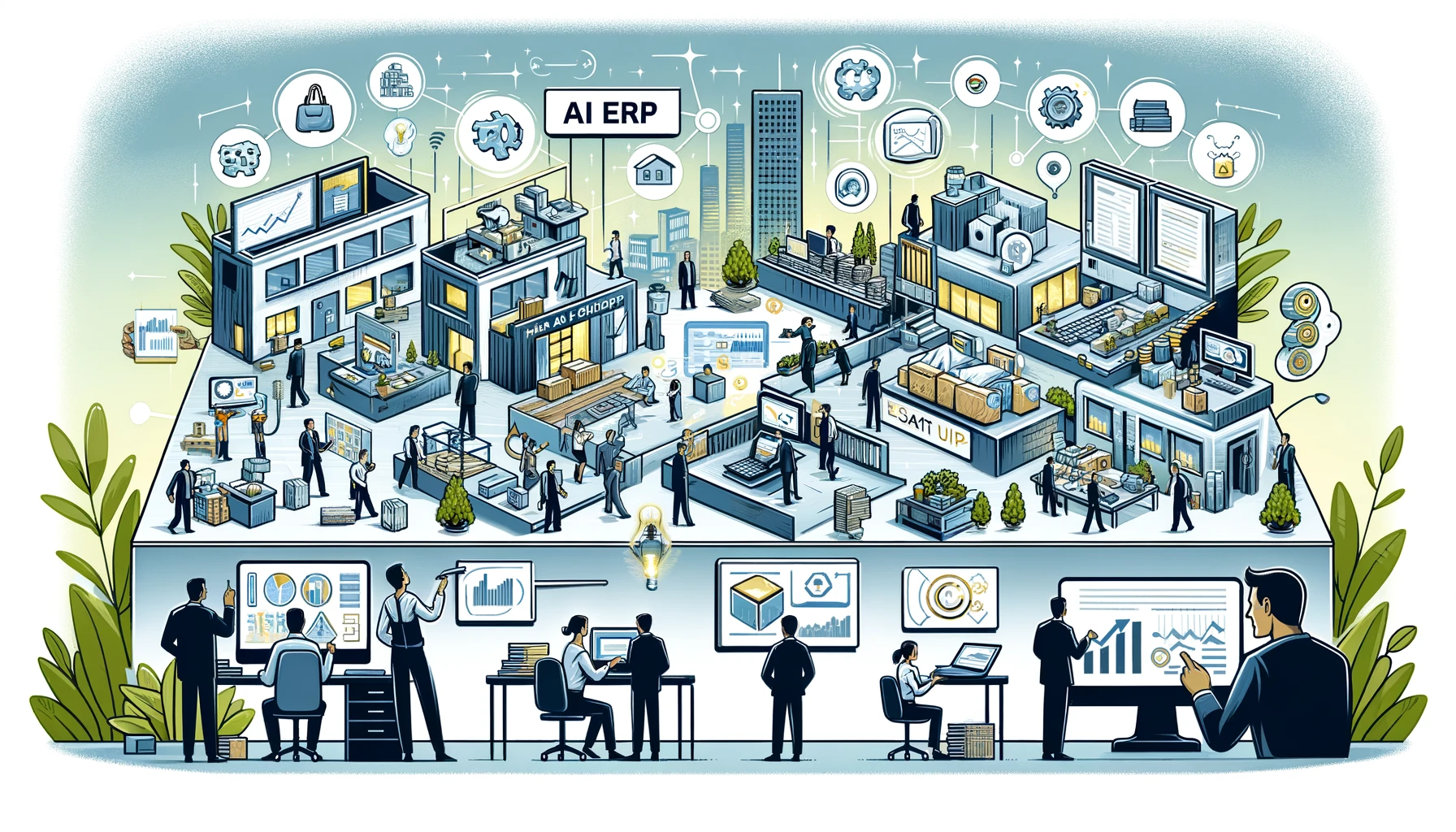
With AI ERP, businesses can enhance their efficiency, make data-driven decisions, and streamline their operations. The result is simplified business management, improved productivity, and a competitive edge in the market.
| Business Aspect | Without AI ERP | With AI ERP |
|---|---|---|
| Efficiency | Medium | High |
| Decision Making | Reactive | Proactive |
| Productivity | Average | High |
In the end, integrating AI ERP into your business operations can bring about a transformative change, making business management a breeze. Whether it’s automating routine tasks, providing real-time insights, or enabling proactive decision making, AI ERP has got it all covered. It’s time to embrace AI ERP and take your business management to the next level.
FAQs
-
What is AI ERP and How Does It Enhance Business Operations? AI ERP refers to Enterprise Resource Planning systems enhanced with Artificial Intelligence. These systems offer advanced data analytics, process automation, and decision-making support, leading to increased efficiency and improved business insights.
-
Can AI in ERP Systems Improve Decision-Making? Yes, AI in ERP systems significantly improves decision-making. By providing predictive analytics and intelligent insights, these systems enable businesses to make data-driven decisions, forecast market trends, and optimize operational strategies.
-
How Does AI ERP Benefit Supply Chain Management? AI-driven ERP systems enhance supply chain management by offering real-time monitoring, predictive maintenance, and optimized inventory management. This leads to improved efficiency, reduced downtime, and better demand forecasting.
-
Are AI ERP Solutions Suitable for All Business Sizes? AI ERP solutions are scalable and suitable for businesses of all sizes. Cloud-based AI ERP systems, in particular, provide access to advanced tools without hefty investments, making them accessible for small to medium-sized enterprises as well.
-
What Are the Challenges in Implementing AI in ERP Systems? Implementing AI in ERP systems can present challenges like ensuring data quality, managing the integration with existing systems, and addressing the need for skilled personnel to operate and maintain AI systems. Continuous training and a strategic approach are essential for successful implementation.
Read more about low-code platform ozma.io
ERP for Small Business UK: Streamlining Operations
ERP for Manufacturing: Optimizing Production Efficiency

